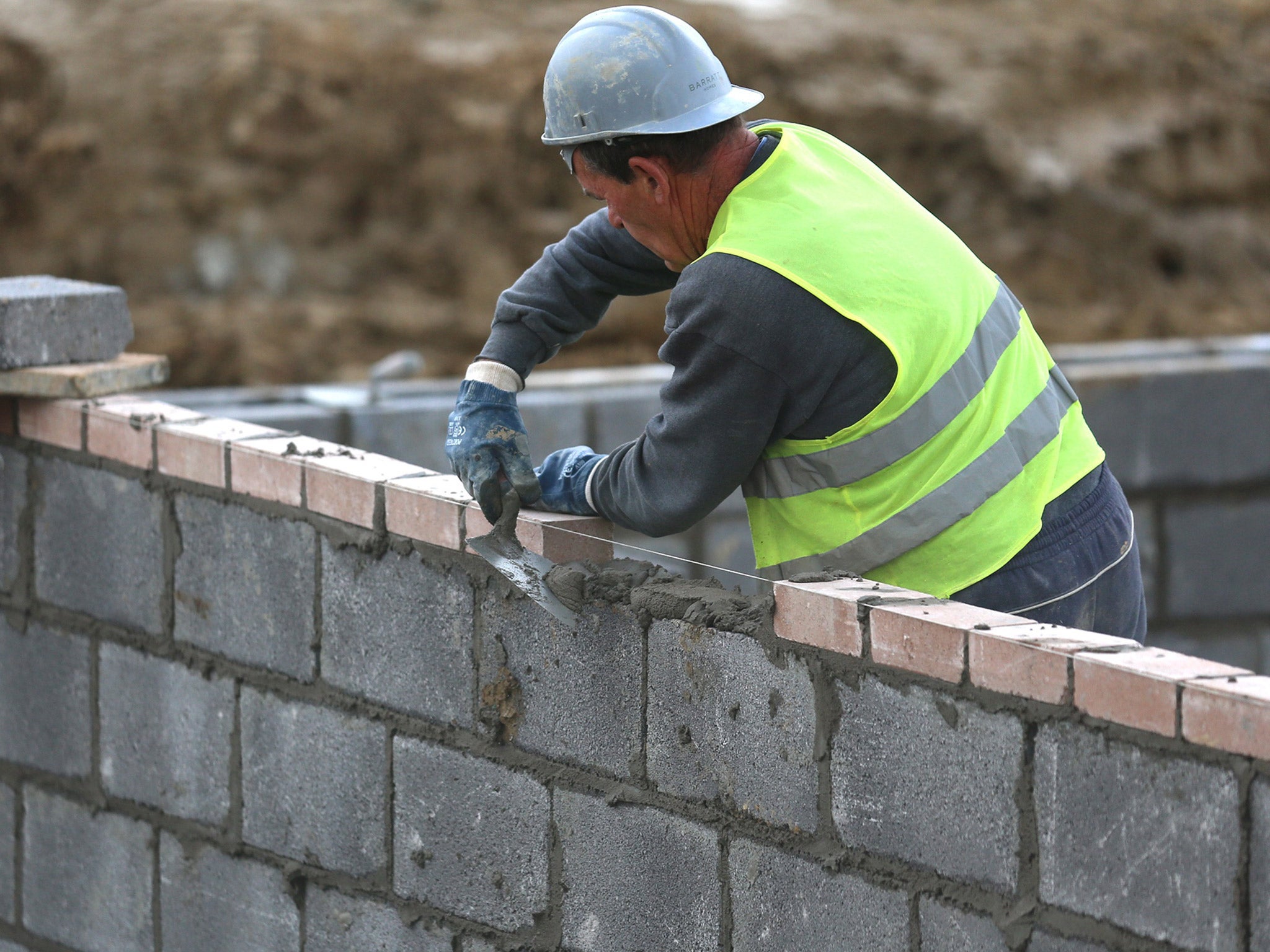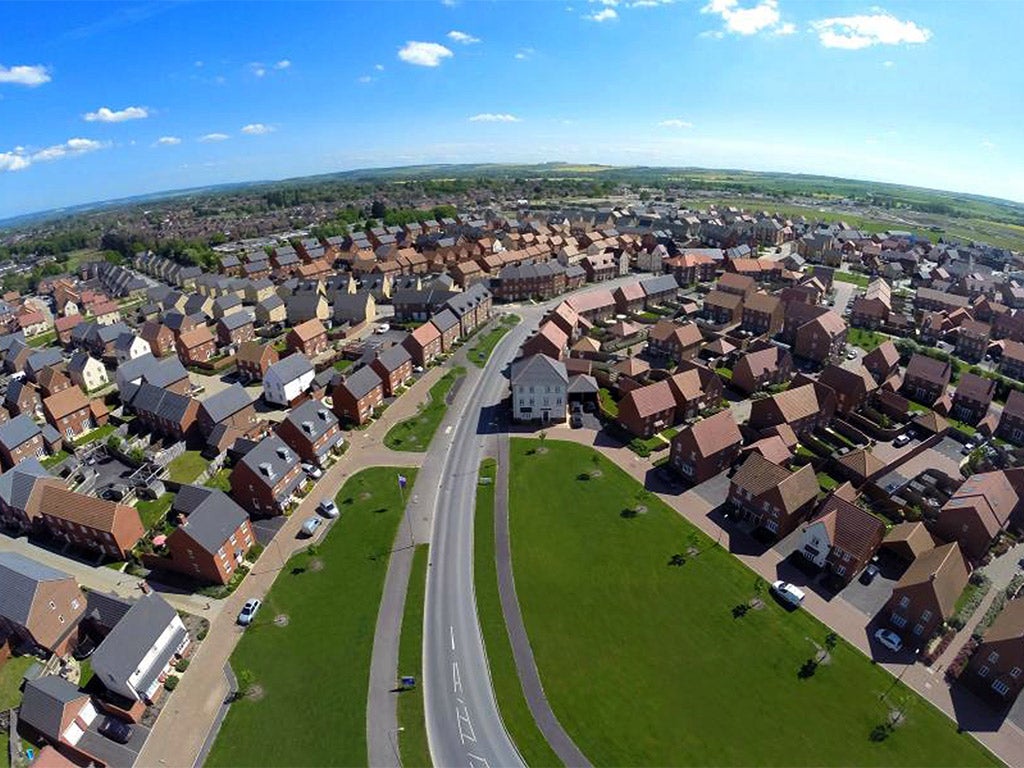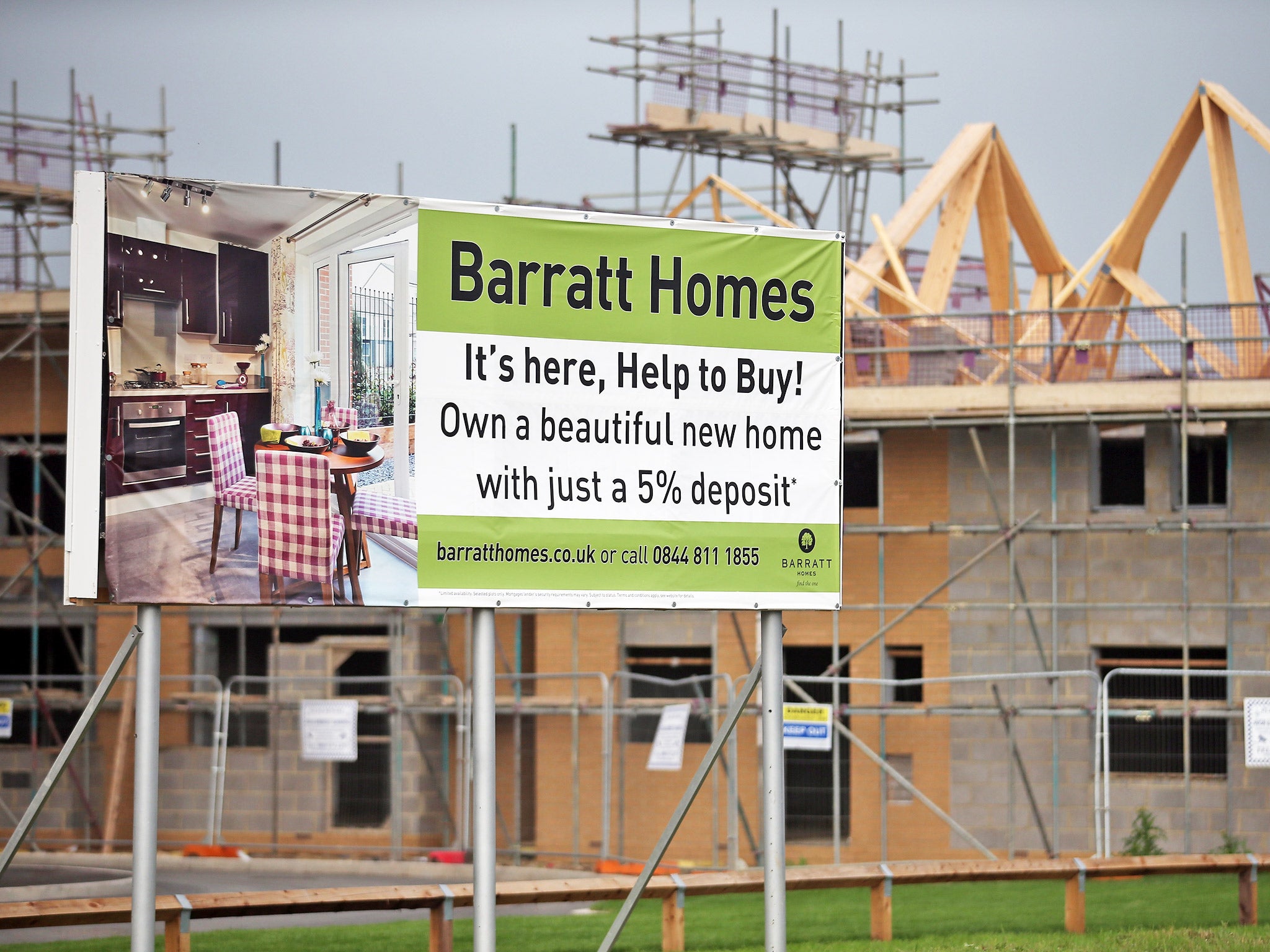UK housebuilders 'restricting the supply of new houses to keep prices unnecessarily high'
Exclusive: A record half a million homes in England now have planning permission granted but have yet to be built

Your support helps us to tell the story
From reproductive rights to climate change to Big Tech, The Independent is on the ground when the story is developing. Whether it's investigating the financials of Elon Musk's pro-Trump PAC or producing our latest documentary, 'The A Word', which shines a light on the American women fighting for reproductive rights, we know how important it is to parse out the facts from the messaging.
At such a critical moment in US history, we need reporters on the ground. Your donation allows us to keep sending journalists to speak to both sides of the story.
The Independent is trusted by Americans across the entire political spectrum. And unlike many other quality news outlets, we choose not to lock Americans out of our reporting and analysis with paywalls. We believe quality journalism should be available to everyone, paid for by those who can afford it.
Your support makes all the difference.Britain’s largest developers have been accused of profiteering on the back of the country’s housing crisis by restricting the supply of new houses to keep prices unnecessarily high.
Latest figures reveal that a record half a million homes in England now have planning permission granted but have yet to be built. The length of time it takes for developers to complete a house has jumped from 24 to 32 weeks.
Ministers are increasingly concerned by the failure of developers to speed up housebuilding and there are fears that some are deliberately restricting supply of new houses to boost profits.
While rates of planning permission for new homes have increased by 60 per cent since 2010 there has only been a 48 per cent increase in the number of new homes being built.
Taylor Wimpey announced a record operating profit margin of more than 20 per cent yesterday as it sold more homes at higher prices. Pre-tax profits at Britain’s biggest housebuilder Barratt Homes have also jumped 40 per cent in the past six months to nearly £300m.
“When you have got housebuilders delivering, on average, 48 homes a year on some [large] sites that’s not good enough,” the housing minister, Brandon Lewis, said.
“We know they can go further. Housebuilders will talk about saturating the market. But we are aware that in too many places we are still taking 20 weeks to build a house when we can do it in three or four.

“Housebuilders should be playing their part to ensure we deliver the homes this country needs.” Ministers are understood to be contemplating new measures to force up the rate of development amid fears that they will fall short of their manifesto commitment to build one million new homes by 2020.
This could include forcing developers that buy publicly owned land to commit to rapid construction as part of the planning process.
Clive Betts, the Labour chairman of the Local Government Select Committee, said: “I think it is clear that the big developers are building at a rate to maximise their profits rather than addressing the country’s housing need.”
Mr Betts added that some developments that have had planning permission were not due to be completed for another 10 years.
“These are private companies who are very simply trying to make money for their shareholders. They are restricting supply and the Government urgently needs to come forward with measures to address this.”
Figures compiled by the Local Government Association show that there are now a record 475,647 homes in England which have been given planning permission but have yet to be built. In 2012-13, the total was 381,390.
In comparison, the number of planning applications being approved had risen to 212,468 – up from 187,605 in 2007-08 – and is higher than all previous years.
Peter Box, the LGA’s housing spokesman, said the figures “conclusively proved” that the planning system was not a barrier to house building. “To tackle the new homes backlog and to get Britain building again, councils must have the power to force developers to build homes more quickly,” he said.
A spokesman for the campaign group Generation Rent added: “These are businesses out to maximise their profits so it makes sense for them to limit the supply of housing that is being built. But it shows that you cannot rely on them to fix the housing crisis.”
Some senior Whitehall figures are concerned that because some smaller developers went bankrupt as a result of the financial crisis, the market is now dominated by a handful of big companies reluctant to increase output significantly.
This view is shared by charities such as Shelter which said one of the “major problems” with the industry was that it relied on “a small number of big developers to deliver the lion’s share of the homes we need”.

However, Mr Lewis has ruled out measures such as imposing council tax on plots that have been granted planning permission for fear that such a move could prove counter-productive. Instead, the Government believes that there is a case for trying to split up sites among rival developers to increase production rates. It is also investigating how to promote “ready-made” houses that could be built off site.
“If I go and look at a site like Didcot where they are building roughly 400 properties a year, they are doing it because there are four outlets,” Mr Lewis told the select committee. “If you have got a site which only has one outlet they [developers] will go back to building roughly 50 a year. It’s not about whether that site can take 200 or 400 a year, it’s how they manage it.”
But Labour’s shadow housing minister, John Healey, said the Government could not escape the blame for the overall shortage of housing. “Ministers are right to be nervous about the performance of the private housebuilders,” he said. “For five years they’ve written developers one blank cheque after another, with little to show for it.
“Cutting back planning rules has meant the number of affordable homes developers build has halved, and now extraordinary plans in the Housing Bill will let them dispense with building low-cost housing altogether and build starter homes on sale for up to £450,000 instead.”
A spokeswoman for Taylor Wimpey said that during 2015 the company had built more homes than at any point in the past six years. Pete Redfern, the group’s chief executive, said it would “continue to work with stakeholders to ensure we open all sites with implementable planning and begin building as quickly and efficiently as possible”.
A spokesman for the Home Builders Federation said the most recent government figures showed that there were 170,690 net additions to the housing stock during 2014-15, an increase of almost 25 per cent on the previous year. He blamed the planning systems of local and central government for the shortfall in housing.
“As a priority, government needs to work with local authorities to speed up the planning system and ensure local plans allocate enough sites of different types and sizes that are attractive to a range of companies,” he said.
“It’s simply not credible for ministers to complain that housebuilders aren’t doing their bit. This is a failure of policy and a failure to see that all parts of the housing sector need to be doing much more to fix the cost-of-housing crisis”.
UK’s biggest developers: What they earn
Taylor Wimpey
Market capitalisation: £6bn
Pre-tax profit: £604m
Profit margin: 20 per cent
Chief executive: Pete Redfern
Salary (including long-term bonuses) £5.8m
Barratt Developments
Market capitalisation: £5.9bn
Pre-tax profit: £570m (est)
Profit margin: 18 per cent
Chief executive: David Thomas
Salary (including long-term bonuses): £4.28m
Berkeley Group
Market capitalisation: 4.43bn
Pre-tax profit: £586m (est)
Profit margin: 25 per cent
Group executive chairman: Anthony Pidgley
Salary (including long-term bonuses): £3.38m
Bovis Homes
Market capitalisation: £1.29bn
Pre-tax profit: £160m
Profit margin: 16.9 per cent
Chief executive: David Ritchie
Salary (including long-term bonuses): £1.5m
Redrow
Market capitalisation: £1.6bn
Pre-tax profit: £95m (est)
Profit margin: 17.2 per cent
Group chief executive: John Tutte
Salary (including long-term bonuses): £1.09m
Join our commenting forum
Join thought-provoking conversations, follow other Independent readers and see their replies
0Comments